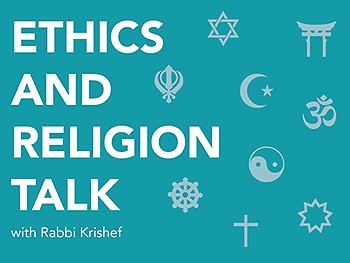Fred Stella, the Pracharak (Outreach Minister) for the West Michigan Hindu Temple, responds:
“Hinduism has no such concept of a ‘closed canon’ as is the case with many religions. While we do have a collection of foundational scriptures known as the Vedas that remain unchanged from antiquity, many others have been created over the centuries. It is quite likely that books are being written today that will be considered sacred writ in the future. A good example would be a tome written in the early 20th century, The Gospel of Ramakrishna. For many it the guiding light of their lives as much, if not more, than any antiquarian missive.
“Since Hinduism is a vast collection of sects, movements and denominations it is not surprising to see that different adherents are drawn to different works. Ideally, we are to respect the choices of our fellow devotees with no sense of judgment as to what might be ‘better’ scripture. We also acknowledge the right of the individual to interpret the scriptures as one is able. And this respect is to be offered towards the holy writings of other religions that inspire compassion and generosity as well.”
Rev. Ray Lanning, a retired minister of the Reformed Presbyterian Church of North America, responds:
“Regarding the Scriptures we know as the Old Testament and the New, Presbyterians believe that they are imbued with the authority, life, and power of God. In them God continues to speak to us today. God has never ceased to reveal Himself in His works of creation and providence. ‘Whoso is wise, and will observe these things, even they shall understand the lovingkindness of the LORD’ (Psalm 107:43).
“The canon, or rule of which books belong in the collection we call the Bible, was determined in a centuries-long process over which only God had control. In Old Testament times, direct revelation ceased when the long succession of the prophets ended circa 400 BC. With no prophet to speak God’s Word, there was nothing more to be written and preserved as Scripture.
“Prophecy was renewed in the ministry of Christ’s forerunner, John the Baptist, in AD 26, and continued through the ministry of Christ and His apostles, down to the writing of the Book of Revelation circa AD 96. The writings of the apostles and their coworkers were recognized by the church as God’s Word even while the authors lived (II Peter 3:15, 16). They spoke and wrote as prophets of the Lord’s Anointed. After their decease, no one in the church possessed the same degree of inspiration and authority, and so there was nothing more to be added to the written Word of God.”
My response:
I understand Scripture to refer to the foundational texts of a religious tradition. Once the principles and major holidays of the religion are established, the sacred canon is closed. From that point on, the purpose of religious literature changes to commentary. It would be impossible for Scriptural literature, written 2500 years ago, to answer questions of medicine, ethics, and science that were unknown at the time. They didn’t have the vocabulary to express the question or the knowledge to answer it. However, if the principles were set down properly in the original set of Scriptures, then all future questions can be addressed using those basic principles.
In my tradition, the basic set of laws, commands, and practices of Judaism was set down in the five five books of the Bible. The next set of books describes the development of the people of Israel and their relationship to their land and their God. In this section of the Bible, we have the words of the classical prophets from whom we learn the centrality of creating a caring religious community. And the final section of the Bible includes poetry and wisdom literature, from which we learn about the religious attitudes of the people.
The canon of the Bible was probably closed around the year 200 BCE. This means that the content of the Bible was fixed; after that point, no new books were admitted into the standard Hebrew Bible. Jewish tradition attributes this decision to Ezra, but there is no explicit evidence that this is necessarily historically accurate. Non-inclusion in the canon did not mean that outside books were ignored as religious texts. Later Jewish literature quotes non-canonical books, such as the Wisdom of Ben Sirah, and later tradition celebrates holidays, such as Hanukkah, based on the non-canonical books of Maccabees.
The Mishnah and Talmud are my tradition’s next stage of Scriptural interpretation, transforming the religion of the Bible into a Rabbinic religion which forms the basis of contemporary Judaism, containing the tools to answer modern day questions using Biblical principles.
This column answers questions of Ethics and Religion by submitting them to a multi-faith panel of spiritual leaders in the Grand Rapids area. We’d love to hear about the ordinary ethical questions that come up on the course of your day as well as any questions of religion that you’ve wondered about. Tell us how you resolved an ethical dilemma and see how members of the Ethics and Religion Talk panel would have handled the same situation. Please send your questions to [email protected].
The Rapidian, a program of the 501(c)3 nonprofit Community Media Center, relies on the community’s support to help cover the cost of training reporters and publishing content.
We need your help.
If each of our readers and content creators who values this community platform help support its creation and maintenance, The Rapidian can continue to educate and facilitate a conversation around issues for years to come.
Please support The Rapidian and make a contribution today.
